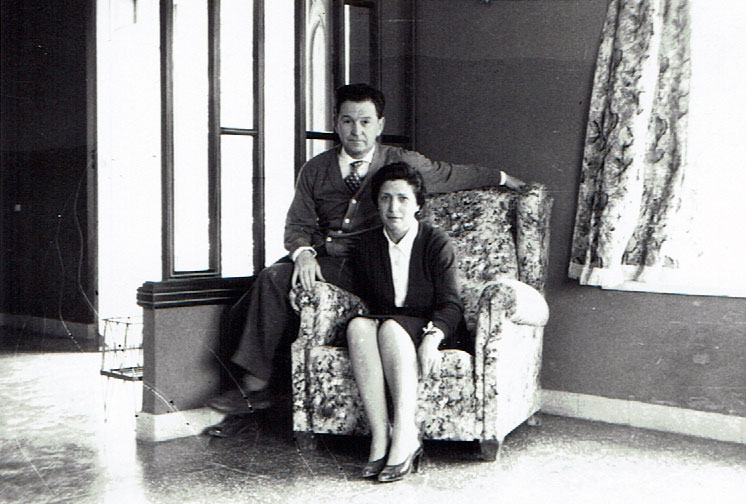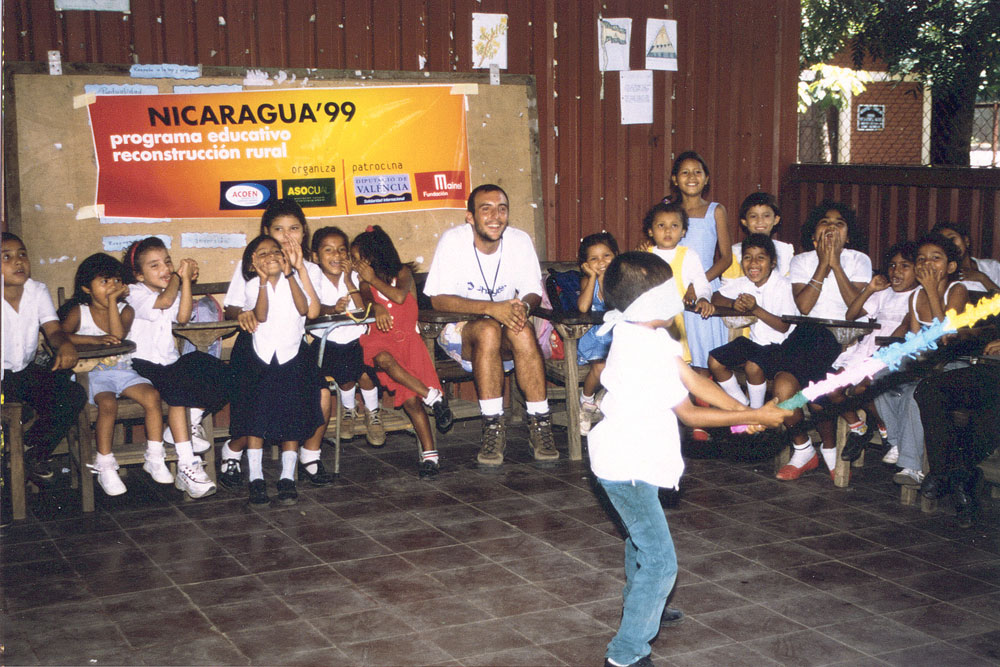Mainel was founded in 1990 by José Rodrigo Rosalén and Carmen Orts Bayarri, a married, childless, Valencian couple.
José Rodrigo was a doctor specialized in Radiology. His kindness, simplicity and dedication stood out and he excelled in his professional practice.
Carmen Orts’ interests laid more within art and culture. In her youth she was an amateur painter and always wanted to promote opportunities for young people. She had a dream of building a world and a culture more interested in human dignity.
José and Carmen decided to constitute a foundation in the last months of 1990 but they had many doubts regarding the name. They did not want to include their family names and could not find a satisfactory name.
The architect Juan María Dexeus, a friend of the couple, knew that the foundation would operate in two main fields (culture and development) and therefore suggested that a fitting name could be Mainel (mullion).
A mullion is a long and thin architectural element which divides a hollow in two parts vertically. Carmen and Pepe really liked this proposal and therefore the Foundation was founded with the name Mainel in December 1990. Pepe was the first president of the board of governors and Carmen took part as a member. The other members of the board were Marcelino Alamar Belloch, Vicepresident, Joaquín Sapena Tomás, Secretary and Francisca Pechuán Porres, member.
The founder couple committed themselves to ensure an annual amount of activities. With their encouragement the resources where used appropriately. In the beginning they only approved minimal structure costs and for a while the headquarters of Mainel were even located in their own home in Valencia.
Of course, the Foundation started off with a very low profile regarding the number of projects. In fact, the first activities were limited on giving out annual scholarships to students and other certain actions.

The first colloquium of contemporary visual culture. From left to right: Manuel Muñoz Ibáñez, Carmen Alborch, José Francisco Yvars, Tomás Llorens y José Maunel Mora, cultural manager of Mainel at the time.
A few years later, Joaquín Sapena Tomás replaced Pepe as President of Mainel, José Luis Boronat became the secretary of the board of governors and Mainel transferred the headquarters to José Luis’ professional office. Initially in the Calle Grabador Esteve and later on, in 1996, in La Gran Vía Marqués Del Turia.
This was an opportunity to focus more on the activity as a foundation. The new headquarter had a spacious meeting room, suited to fit a good group of people. Since then we have had an enthusiastic collaboration and great support from Maruja Arribas, secretary in the office, who fulfilled some of the administrative tasks of the foundation with affection and efficiency.
The situation – at zero costs – made it possible for us to change the pace: 1997 we could celebrate the first Short Story Award of the Mainel Foundation (I Premio de Cuentos de la Fundación Mainel) and the path was cleared for the Colloquies for Contemporary Visual Culture (Coloquios de Cultura Visual Contemporánea); in 1998 the First Painting Award of the Mainel Foundation (I Premio de Pintura de la Fundación Mainel) took place. Those three activities maintained without interruption and are identifying traits of the Foundation in its cultural field.
We have a connection to development cooperation at Mainel, therefore we share the vision that education and professional training are the principal motors of progress. We make sure, that this idea is reflected in all our activities. Our first action in the field of development cooperation took place in 1997. It included further education for teachers, organized by the Instituto Superior Pedagógico La Salle, in Urabamba (Peru).
Later on, other educational projects followed in Mexico and Rumania, for instance one which was carried out with the school group “Grigore Moisil” in Brálla (Rumania).
In 2000, Mainel was recognized as a Non-Governmental Development Organization (Organización No Gubernamental al Desarollo) by the Spanish Agency for International Development Cooperation (AECID). Since then, we have developed dozens of projects in Nicaragua, Guatemala, Peru, Colombia, Panama, Democratic Republic of Congo, Ivory Coast, Nigeria, India etc. Most of the projects correspond to the educative sector. Remaining faithful to his origins, Mainel is a NGO specialized in education.
Pepe, doctor and a good and caring person, liked to say, that all ill people would heal better if they received affection by their surroundings, in addition to adequate medical attention. He considered help or cooperation limited to material aspects as a “maimed” cooperation.
Perhaps those considerations bring sense to what appears first on our website, among our values:
“Love and respect for all, keeping in mind that this means more than a simple economic aid.”


